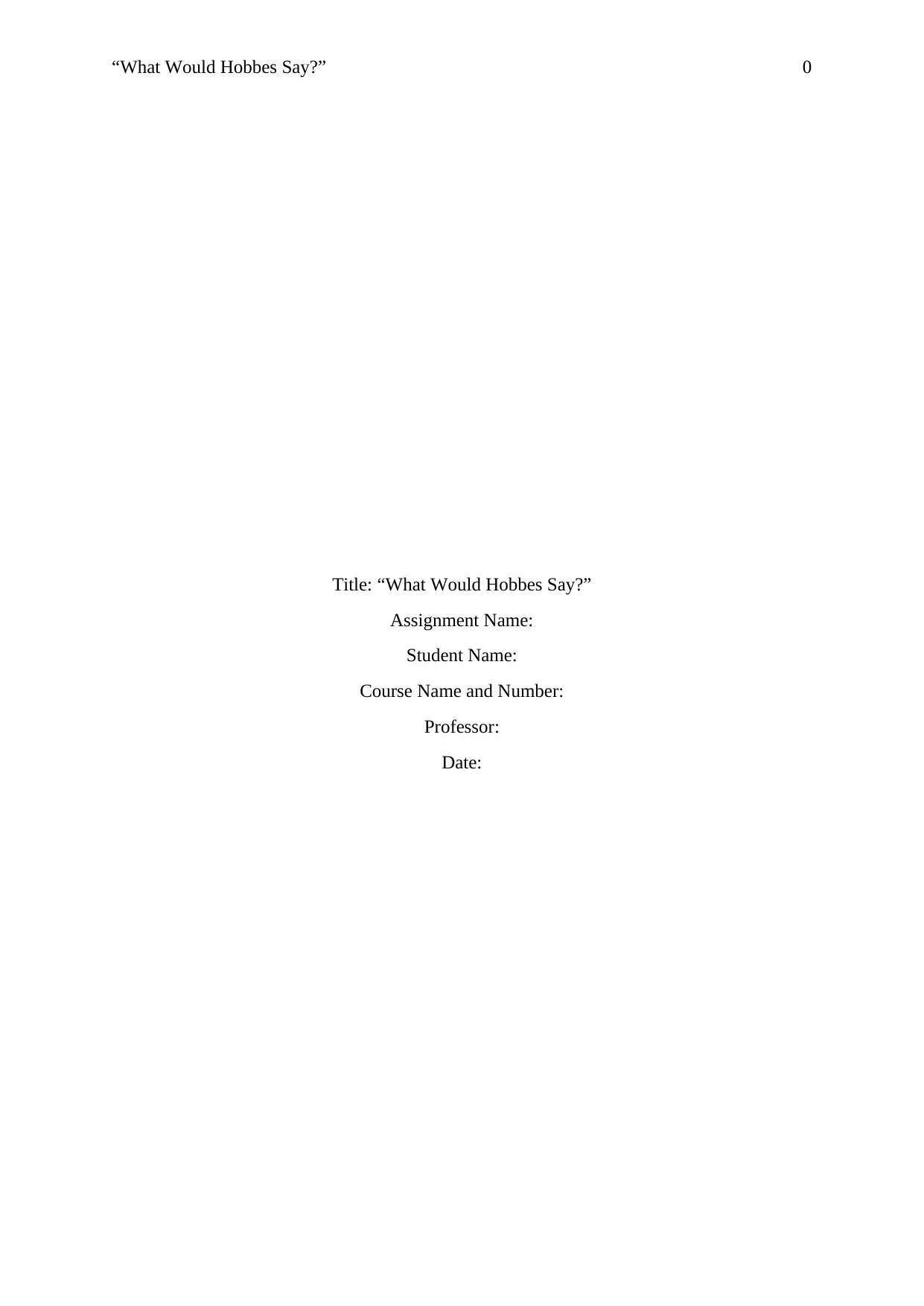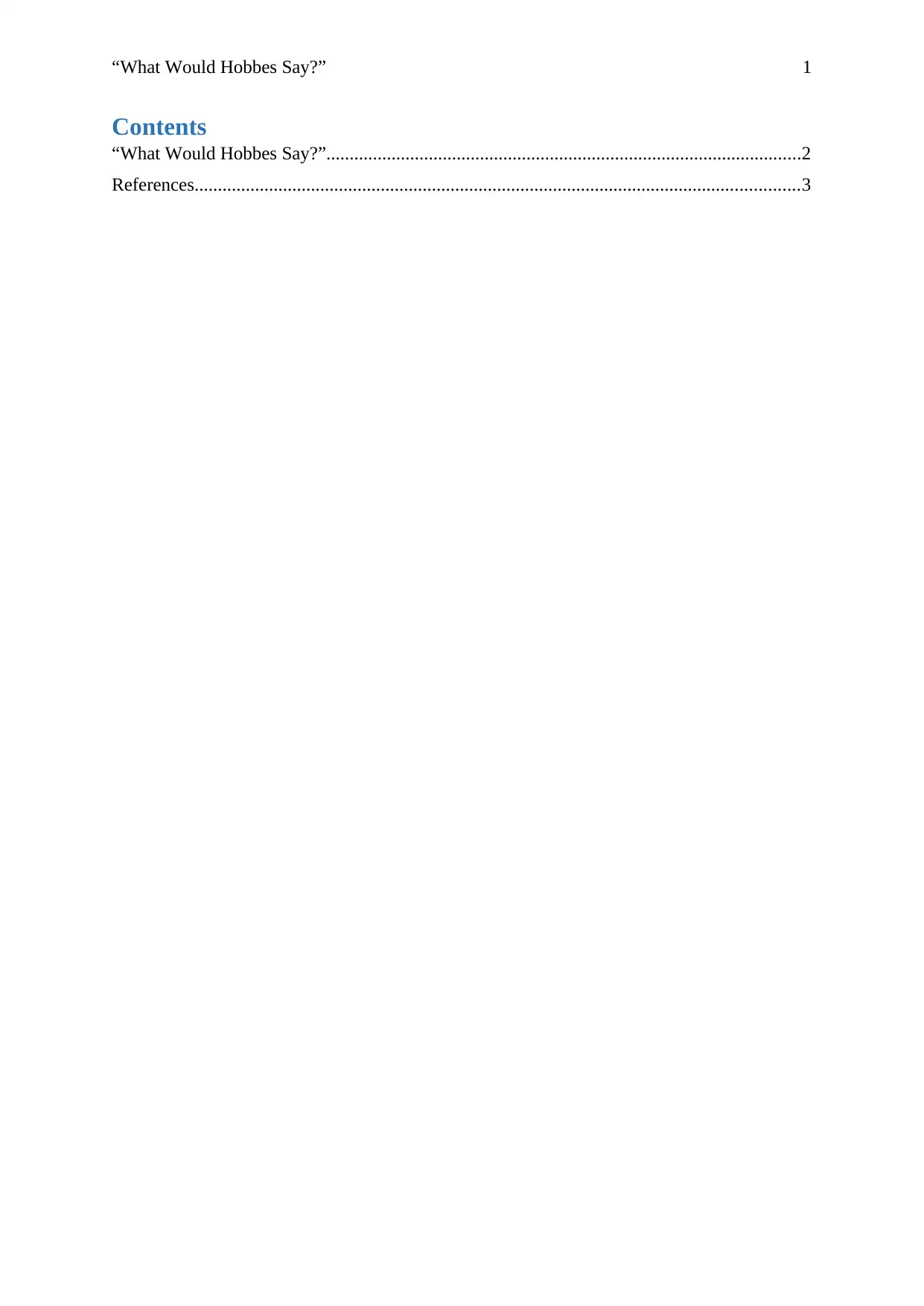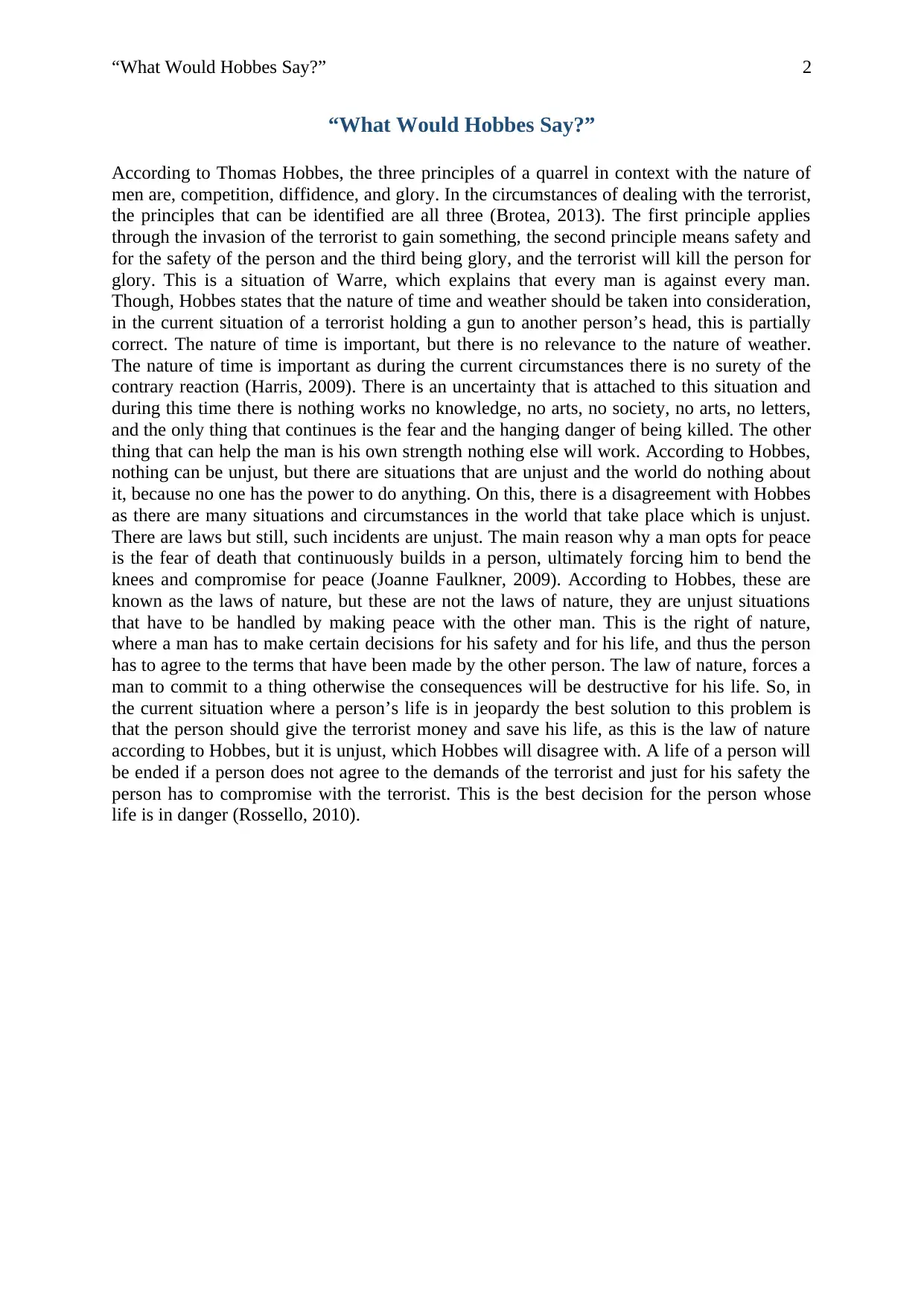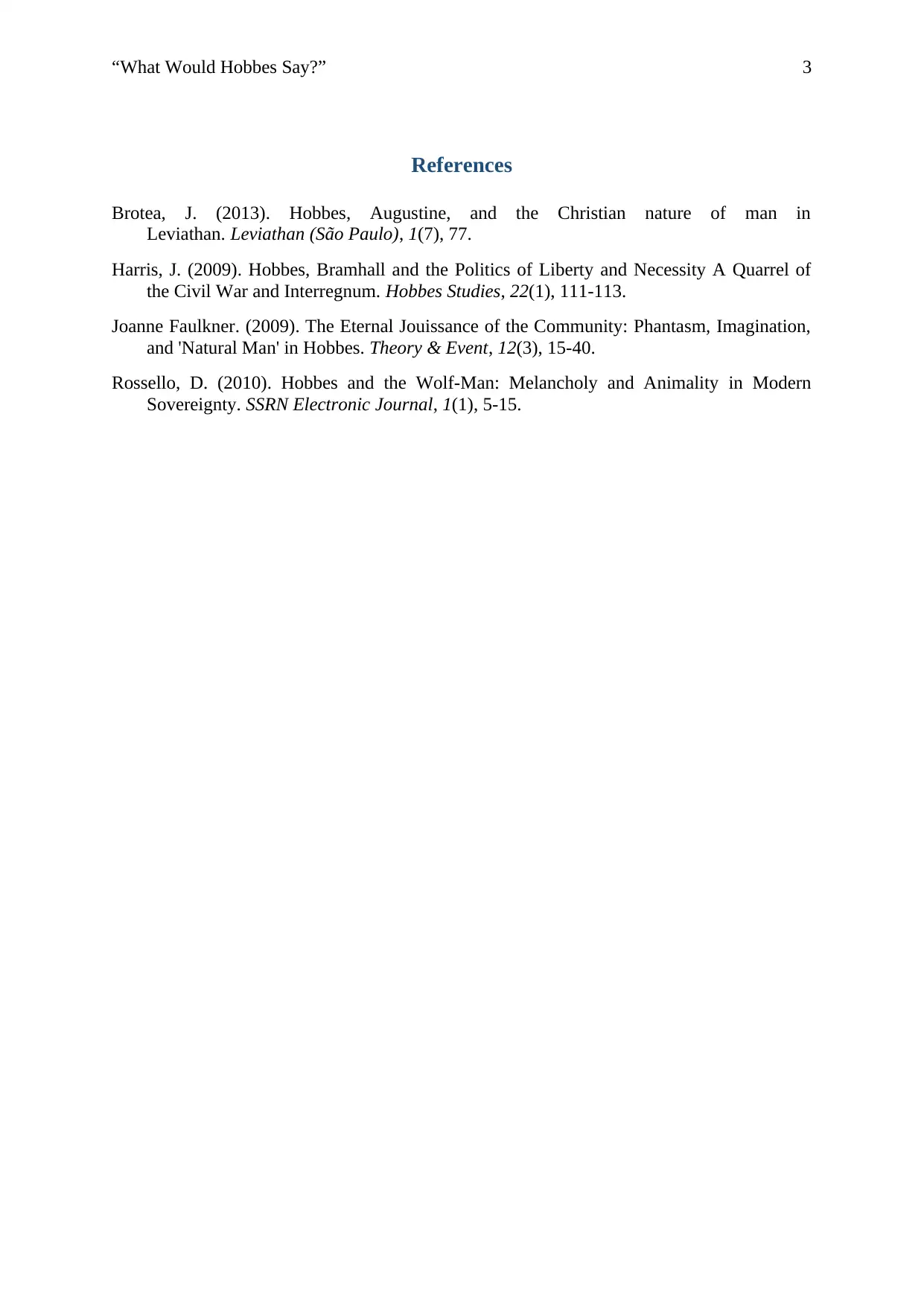POLI 221: Fall 2018 - Hobbes' Analysis of Terrorist Threat
VerifiedAdded on 2023/05/30
|4
|796
|414
Essay
AI Summary
This essay analyzes Thomas Hobbes' perspective on a scenario where a person is held hostage by a terrorist. Drawing upon Hobbes' principles of competition, diffidence, and glory, the essay examines how these apply to the situation. It explores the concept of a "Warre," where every man is against every man, and the significance of time and the absence of societal structures in such circumstances. The essay then delves into Hobbes' views on justice, the fear of death, and the laws of nature, arguing that, according to Hobbes, the best course of action for the hostage would be to comply with the terrorist's demands to ensure their survival, even if it is considered unjust. The essay concludes by highlighting the primacy of self-preservation within Hobbes' philosophical framework.
1 out of 4











![[object Object]](/_next/static/media/star-bottom.7253800d.svg)